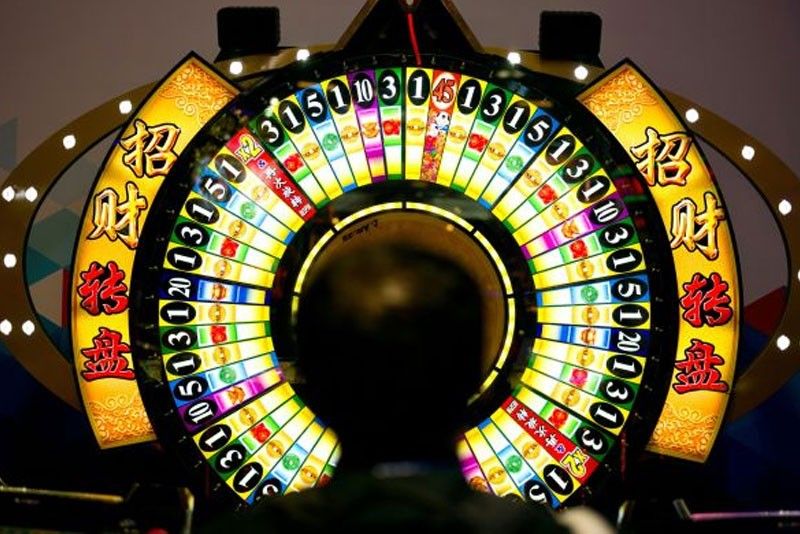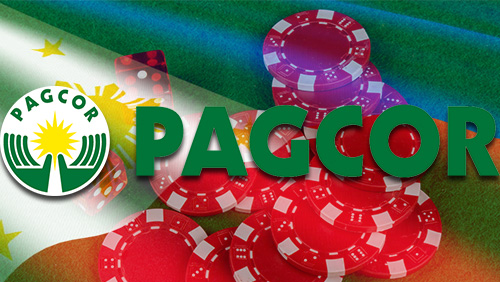Online Gambling License Philippines
Philippine gambling laws were initially set up to govern the casinos and protect the players. The government established the Philippine Amusement and Gaming Corporation (PAGCOR) to regulate and license the industry and disburse the revenue obtained from these sources to other governmental branches. Over the years amendments have been added and retracted to fine tune the gambling industry in the Philippines. Today you will find that brick-and-mortar casinos and poker rooms are available across the region and while the current president disagrees with Philippine legal online gambling, the laws relating to this type of gambling entertainment do not impose any restrictions. This page will go into detail as to what laws pertain to gambling and how they affect the Filipino players and the gambling market in the region.
Is Gambling Legal In The Philippines?
Yes, gambling is legal in the Philippines when it is licensed and regulated. In 1975, then President Ferdinand Marcos wrote into law Decree No. 1067-a that defined legal gambling and created PAGCOR to license and regulate the industry. PAGCOR is the government agency created to oversee the gambling industry for the specific purpose to promote tourism and fund the building of infrastructure. There are also many casinos that are owned by PAGCOR, as of early 2017 they owned at least 46 casinos across the islands.
The Philippine gaming regulator has stopped issuing licenses to online gambling firms, and lawmakers and some ministers have called for tighter controls on Chinese visitors, saying many are illegal. In 2001, the online gaming industry was nearly shut down by the President of the Philippines, but Internet gaming survived the incident due to the leader’s impeachment in the same year. In 2002, the government opened its Internet gaming industry to competition when it granted Philweb Corporation control of online casinos.
Is Online Gambling Legal In The Philippines?
Yes, there are no Filipino laws that state that it is illegal for residents to gamble online. The one exception is that Filipino-based casinos and sportsbooks are not allowed to offer their online services to residents of the Philippines, but Filipino players are given free access to partake in Philippine legal online poker, Philippine legal online casinos, Philippine legal horse betting, and Philippine legal online sports betting sites as long as the destinations are regulated and licensed by their local regulatory agencies or gaming commissions. All the gambling laws in force on the islands are directed towards the casino operators instead of the players.
A Break Down Of Philippine Gambling Laws
- Gambling laws were not a part of Philippine statutes until 1975 when then President Ferdinand Marcos signed the Decree No. 1067-a. This law defined legal gambling in the Philippines and created the Philippine Amusement and Gaming Corporation (PAGCOR). This regulation specifically states what forms of gambling entertainment are legal. Any domestic gambling not listed among the approved venues is assumed to be illegal.
- Three years later Decree No. 1602was passed and declared penalties for anyone violating the gambling laws in the Philippines.
- Republic Act (No. 9287) was signed in order to amend certain provisions of Decree (No. 1602), this act increased the penalty for illegal number games. A person caught playing or organizing an illegal game could get 30 days to 20 years imprisonment depending on the charge under this new amendment.
- In 1983, Presidential Decree (No. 1869) was enacted which requires the Philippine Amusement and Gaming Corporation (PAGCOR) to be used as a guideline on how to license and regulate gambling organizations. It also lists the corporate powers and operations of PAGCOR as well as any other powers, provisions, and exemptions that pertain to the government agency.
- The Republic Act (No. 7922) established the Cagayan Freeport economic zone for the Cagayan Valley. This regulation defined the principles of operations and created the Cagayan economic zone authority (CEZA) to promote tourism in the Cagayan providence area.
- In 2017, the Executive Order (No. 13) was written into law to strengthen the fight against illegal gambling. Section 3 of this order is the classification of online gambling and where they stated it is legal for Filipino residents to participate in regulated offshore sites but illegal for domestic operators to offer online gambling to Filipino residents.
- Republic Act No. 10927 was enacted in 2017 to strengthen Republic Act No. 9160 – The Anti-Money Laundering Act of 2001. RA 10927 puts tougher regulations and restrictions on big payouts and wagers. It also mandates that all casinos now keep detailed records for 5 years about their customers.
- House Bill 8910is a bill that aims to regulate e-sabong and online cockfighting throughout the Philippines. It also enhances several functions of the Games and Amusement Board.

Philippine Regulatory Agencies
- Philippine Amusement And Gaming Corporation –
(PAGCOR) is a 100% government-owned corporation permitted to operate, authorize and license any game of chance and to generate revenue for governmental national development programs. - First Cagayan Leisure And Resort Corporation –
(FCRLC), Imposes its own set of laws and regulations for their economic region and aims to produce a self-sufficient industry and provide employment and income for the Metropolis of Santa Ana. - Philippine Racing Commission –
(PHILRACOM), aims to maintain efficient and unbiased operations of horse racing that deals with the sport and gambling, while improving the breed of Philippine horses and preventing illegal importation of sporting horses. - Games And Amusements Board –
(GAB) is the organization that regulates and supervises play for pay sports and strives to prevent the formation of illegal bookies and other illegal gambling centered around combat sport games and amusement games. - Philippine Charity Sweepstakes Office –
(PCSO), the principal government agency that organizes and regulates sweepstakes and lottery games while also engaging in welfare-related health investments.
FAQs About Philippine Gambling Laws
What Is The Legal Gambling Age in The Philippines?
21 is the legal gambling age throughout the Philippines for participation in domestic gambling entertainment. 18 is the legal gambling age for residents in the Cagayan Special Economic Zone.
What Forms Of Gambling Are Legal In The Philippines?
Domestic brick-and-mortar gambling and offshore online gambling are both permitted in the Philippines.
Why Can’t I Participate In Philippines Based Online Gambling?
The current President would like to see all online gambling outlawed for Filipino residents. He believes it is a problem running rampant across the islands and thus refuses to allow local casinos to offer their online services to Filipino residents.
What Is The Penalty For Illegal Gambling In The Philippines?
According to the Republic Act No. 9287, the penalty for illegal gambling can be anywhere from 30 days to 20 years imprisonment, depending on the offense.
30-90 days for a person caught in the act of illegal gambling participating as a bettor.
6-8 years for personal or staff of an illegal number game.
10-12 years for a coordinator of an illegal numbers game.
12-14 years for a manager, maintainer or operator.
14-16 years for a financier or capitalist
16-20 years for a protector or coddler
Philippines Legal Gambling By Region
You may have several questions when it comes to legal online casino gambling in the Philippines. This is a good thing. Online gambling can be a tricky market given a country’s gambling laws. That is why we developed this page to hopefully answer some of your pressing questions regarding the legalities behind domestic and offshore gambling in the Philippines.
Is It Legal To Gamble Online In The Philippines?
Online Gambling License Philippines Renewal
Yes, but only through licensed offshore gambling sites. Filipino based online casino and gambling sites are not allowed to offer services to domestic players. There are numerous licensed offshore casinos available for use without breaking any laws.
Is Brick-And-Mortar Gambling Legal In The Philippines?
Yes. Philippines gambling laws permit brick-and-mortar gambling in multiple establishments throughout the country. A lot of gambling spots are located in the Metro Manila area.
Online Gambling License Philippines Registration
What Types Of Gambling Forms Are Considered Legal In The Philippines?
Philippines residents are able to participate in legal casinos with slots, table games and more. There are also legal poker options, sports gambling, race betting, sabong, lottery gambling and more.
Who Regulates Gambling In The Philippines?
Regulation is split up amongst multiple departments. The Philippine Amusement and Gaming Corporation (PAGCOR) is the largest regulatory entity in the country. There is also the First Cagayan, Philippine Racing Commission, the Games and Amusements Board and Philippine Charity Sweepstakes Office.
Who Regulates Offshore Gambling Sites For The Philippines?
Offshore gambling sites are licensed and regulated outside of the Philippines. If an online site were licensed in the Philippines it would not be allowed to offer Filipinos its services. Most online sites that carry licenses are out of the Cagayan Economic Zone Authority.

Which Gaming Activities Are Regulated In The Philippines?
Casino, gaming machines, horse race betting, remote gambling, and lotteries are all regulated in the Philippines.
What Types Of Casino Games Are There In The Philippines?
Philippines based casinos feature slots, baccarat, blackjack, pai gow, roulette, poker, craps, video poker and more.
Is Sabong Offered In Philippines Casinos?
No. While Sabong is legal in the Philippines, there are venues designated for that activity. Casinos do not have a Sabong section.
How Do Online Gambling Laws Differ In The Philippines?
Online gambling in the Philippines is basically divided between the Philippines and the Cagayan area. Cagayan-licensed online gambling sites only accept foreign players. Filipinos in the main part of the country do not have any domestic online gambling options. Instead, they use e-gaming machines scattered throughout the country. This is why many Filipinos used licensed offshore gambling sites to play online.
What Is The Legal Gambling Age In The Philippines?
Players must be at least 21 years of age to use PAGCOR establishments. First Cagayan enforces a gambling age of 18 for any of their operations. Local students attending university are restricted from using PAGCOR locations.
How Are Licensing Fees Handled For Casinos In The Philippines?
Online Gaming License Philippines
There is a formula for calculating licensing fees when a new applicant surfaces. That formula is multiplied by the gross gaming revenue of the said establishment. The GGR is a culmination of revenue from slot machines, chip washing stations, and special table gaming areas.
Does PAGCOR Own All The Casinos In The Philippines?
PAGCOR operates many of its own casinos, however, there are resort projects outside the PAGCOR umbrella.
How Do Taxes Work With PAGCOR Casinos?
PAGCOR has a 5% franchise tax and 50% of the total winnings from gambling go towards the national government. The government then sends those funds to bolster infrastructure and civic projects.
Do Individual Players Need To Pay Taxes On Gambling Earnings?
This is a debated topic. While some players run the risk of not declaring gambling income and therefore not paying taxes, it is possible legal troubles may arise if audited. It is a common misconception that you do not have to report lower amounts of gambling earnings. The Philippine Tax Code is vague when it comes to gambling earnings.
In theory, gambling income of PHP 10,000 and below are taxed at 10% and taxed at 20% for PHP 10,001 and above. However, there are no reports of the Philippine government coming after people for tax evasion on gambling earnings. Gambling income is a gray area for most countries when it comes to tax purposes, especially if you have a full-time job as your primary income source.